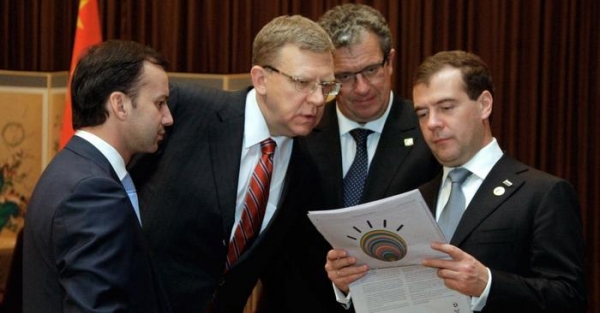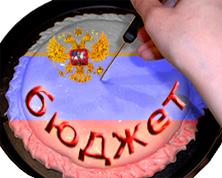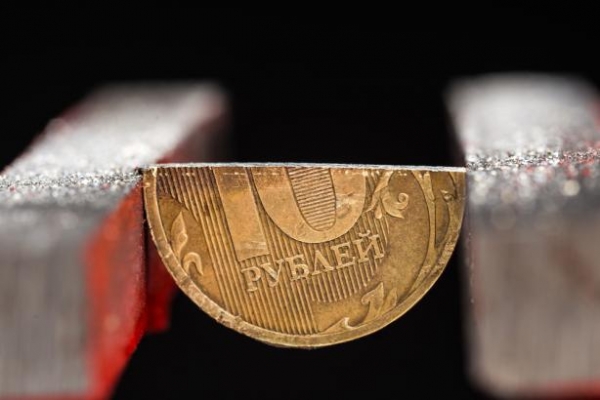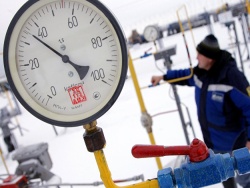In Russia again, is planning another ambitious privatization what an Orgy Russian and Inostrannye media.
Here is one recent article the new York times: “Credit Suisse and UBS are invited to participate in the privatization in Russia”, Le Temps, Switzerland http://inosmi.ru/economic/20160428/236336823.html
The Russian government has turned to the largest international banks with a proposal to participate in a wide privatization program. However, its prospects are uncertain and vague.

According to Deputy Minister of economic development of Russia Nikolai Podguzov, Swiss banks Credit Suisse and UBS has applied for participation in the privatizations that holds this year the Russian government. According to him, the same way it did three major Western Bank: Raiffeisen, Citi and UniCredit. The Swiss banks have so far refused to comment on this information.
As expected, the privatization campaign should cover a significant share of several major Russian companies. We are talking about the world’s largest diamond producer ALROSA (10-20% of the capital), the country’s second Bank VTB (11%), the main raw material company Rosneft (19%) and sixth-largest oil company Bashneft (51%). With the exception of Bashneft, the Russian government intends to keep most of the capital of all enterprises.
Opacity and secret commissions
As the economy for the third consecutive year in recession and the pressure on the budget grows, the word “privatization” is increasingly heard in the summit of the Russian government. Its official founding, the completion of the budget and accounts of the indebted SOEs. However, experts point out less obvious motives.
“The approach to privatisation is not to call dogmatic: he is built from complex and different motives, — said Andrei Movchan, from the Moscow Carnegie Center. — Comes into play many factors, such as the lack of buyers, or adverse operation conditions. It is worth remembering that privatization are non-transparent way. Some participants seek to act as intermediaries to obtain a secret Commission. This makes the privatization process unpredictable.”
Dependence on oil prices
The Russian authorities tend too quickly to sell the skin has not killed a bear. So, on April 17 Minister of economic development Alexei Ulyukayev said about the intention of Airbus to buy 25% of “Russian Helicopters”. In the French representation of the company immediately denied this information.
In the past the government’s plans to conduct privatizations often were canceled. “If oil prices again rise to $ 60 per barrel, will be revised many options, including privatization,” says Movchan.
After the collapse of oil prices in 2009, the Kremlin has also promised privatization, but further words business didn’t go with the rapid recovery of the oil market. The fragility of the Russian economy and its dependence on oil prices resurfaced. After a fruitless meeting of the major world exporters in Doha, the ruble fell against the dollar stronger than all the other world currencies.
The pragmatism of the Russian elite
In addition, privatization causes gnashing of teeth from supporters of the managed economy. Igor Sechin, head of Rosneft and one of the main pillars of this group of the Russian elite, do not agree with partial privatization of the company under the pretext that oil prices are now too low. According to him, you need to wait until the barrel will not rise to $ 100. Sechin is considered one of the initiators of nationalization of the Russian oil sector in mid-2000-ies, the most striking episode of which was the partition of Yukos. The government privatized 15% of Rosneft in 2006, when the quotes of black gold has shown steady growth. Then one share of company was worth 7.55 dollar, and now it gives a 3.3. “Rosneft is in dire need of funding, — emphasizes Andrey Movchan. — However, the payment of the principal debt does not come on this, and the following year. In addition, Rosneft has other options for obtaining liquidity, for example, the conversion shares or the merger with Surgutneftegaz”.
Today most of the government supports privatization, but this does not became a result of the triumph of liberal thought, which considers private shareholders more effective leadership than the government: “the Elite is extremely pragmatic and does not adhere to any ideological dogma. The management prefers large state-owned enterprises because they provide more predictability, while their opacity allows you to create diagrams for corruption and personal enrichment.”
Results predydushih prihvatizatsii known to all:
ANALYSIS of the results of PRIVATIZATION IN 1992 – 1996 http://www.r-reforms.ru/indexpub40.htm
(From the Report of the Commission of the state Duma on the analysis of the results of privatization (1997)
The privatization of the Russian economy in 1992–1996 from a theoretical point of view was deeply flawed – because carried out haphazardly, without scientific justification, while ignoring international experience. Privatization failed to improve production efficiency, and has led to a deep crisis and the collapse of the economy due to the fact that we have created inappropriate owners (sometimes from the criminal environment) due to ignoring the legitimate rights of broad masses of working people, with deliberate destructive direction and focus in carrying out reforms.
From a practical point of view, privatization has led to disastrous socio-economic consequences caused huge damage to all sectors of the economy, science and culture, undermined the country’s defense capabilities. Public property sold off for a pittance to the banks, mafias and agents of foreign States.
From an economic point of view, privatization is tantamount to an unprecedented economic sabotage. Losses from the destruction of the economy exceed by more than twenty (!) times the total revenues of the Russian budget in 1996 and two and a half times the losses in the great Patriotic war. Incomes of the budget from privatisation for 1992 – 1996 made a ridiculous amount – about zero point fifteen hundredths of one percent (0.15 percent) of total revenues. On average, 7 million rubles (1,3 thousand dollars) “prihvatizirovat” each of 125.4 thousand objects of state property. Impoverished and looted the state is selling off the accumulated work of generations of government stocks, the income from which in 1996 almost 25 times more than revenues from privatization.
From a legal point of view, privatization was a criminal act, as it led to enormous economic and social losses, were carried out hastily with grave violation, in some cases by ignoring the rule of law and in the absence of regulatory framework, have resulted in the criminalization of society and the progressive growth of crime.
On the methods of implementing privatization was an adventure that allowed in a short period of time to enrich a small handful of “new Russians”, the bankers, the traders and agents of foreign States at the expense of generations of accumulated wealth and absolute impoverishment of the broad masses of the working people deceived. None of the stated aims and objectives of privatization are not attained.
Socio-economic losses from privatization and destruction of the economy exceed 9500 trillion rubles in 1995 prices (i.e. the order of TWO TRILLION DOLLARS !!!), including: economic losses amounted to more than 5,000 trillion roubles, and social – over 4500 trillion rubles, the equivalent of twenty annual budget revenues of the Russian Federation for 1996. In addition, over the five years of privatization are taken out from Russia more than 60 billion dollars, equal to the amount equal to 1.5 revenues of the Federal budget of Russia in the same year (according to other sources – three times more: UAH 183.7 billion – the estimated data for 1997).
The main conclusion is that the socio-economic situation in the country urgently calls for a decisive ending of mass privatization and the transition to a balanced process of transformation of forms of ownership, the process in which equitable would be conducted in the event of privatization, nationalization and confiscation of misappropriated property.
Academician V. Lisichkin,
the Deputy of the state Duma, Deputy head of the economic policy Committee.
(From the Report of the Commission of the state Duma on the analysis of the results of privatization (1997)
may 1997
Neugeli, the Russian people still did not understand that the country is the so-called privatizatsia and so-called reforms just openly Rob?
And why they are doing this without the consent of Narada, although his silence can be defined as his THANKED? In fact, besides the collapse of the economy and impoverishment of the people of the country from previous privatizations more received nothing, and the perpetrators are still not brought to justice!!!
Therefore, I would like to know Your opinions:
Whether in Russia new privatisation?
{{ poll_variant.votes }}
{{ poll_variant.vote_percents }}%
{{ poll_variant.answer }}
Total votes: {{ rs.votes_count }}








